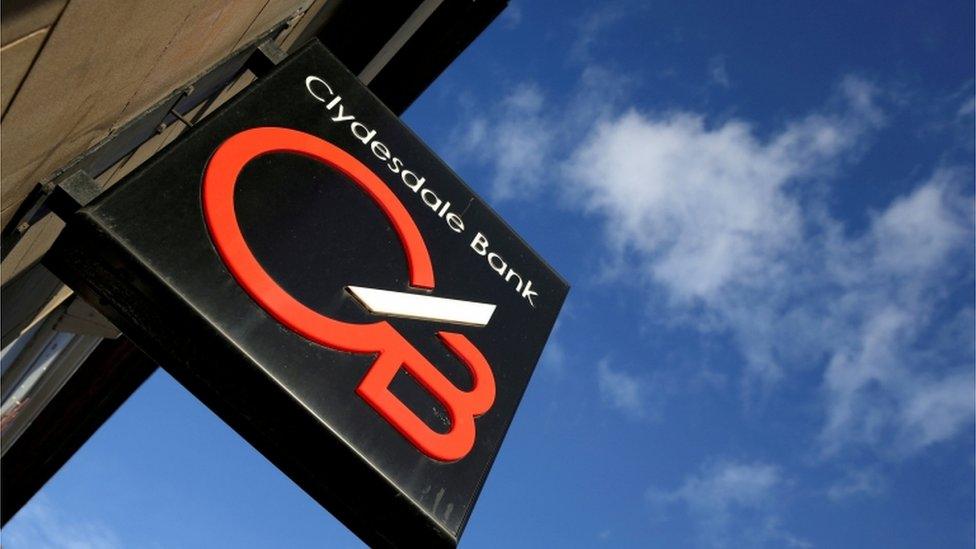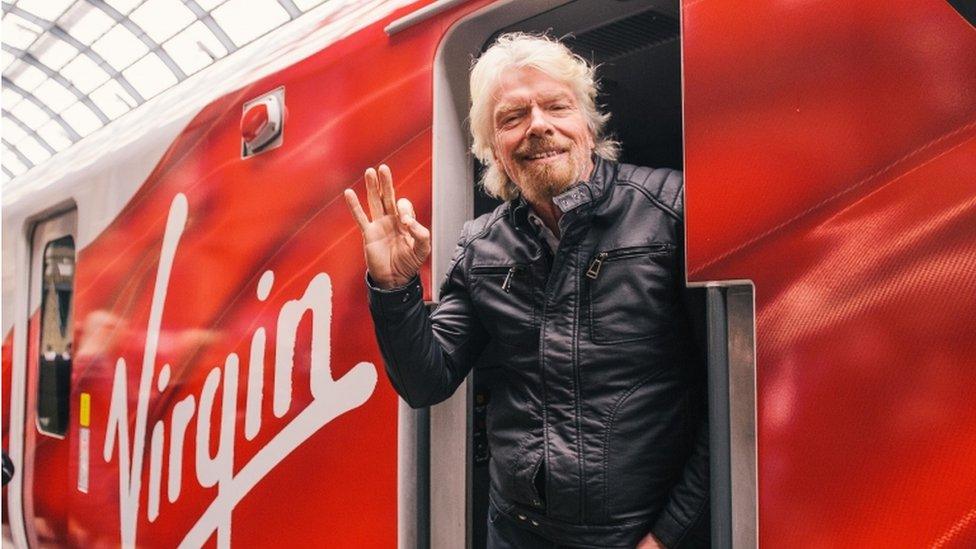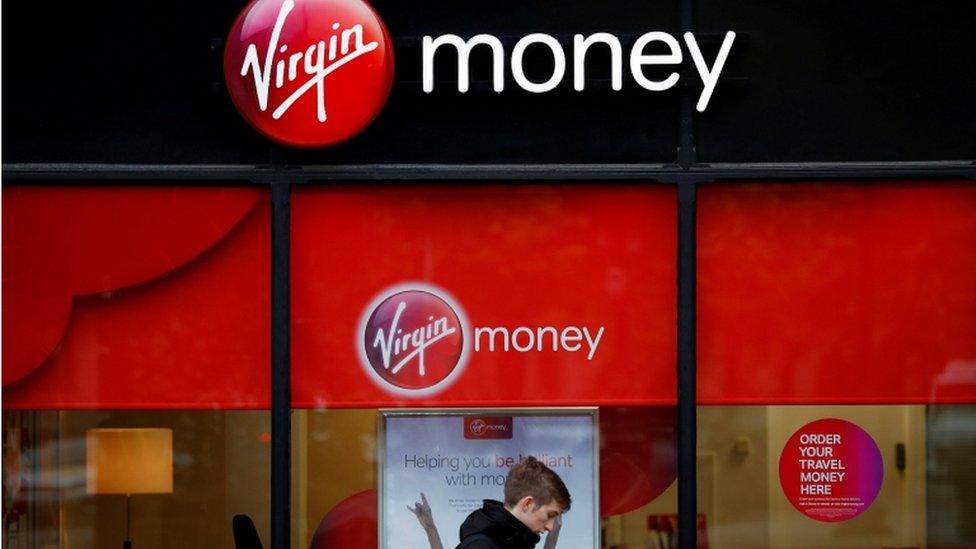Clydesdale put out to grass
- Published

We shouldn't get too sentimental about brands. But for some of us, the Clydesdale Bank is family, and for generations back.
It's also about a city, being a significant part of the financial architecture that made Glasgow the industrial powerhouse it became.
So while the public is increasingly unhappy about losing branches from the high street, some might also be unhappy to see this 180-year old brand disappear altogether.
Britain's brand baron is Sir Richard Branson, having discovered some sort of alchemy with the word "Virgin".
With Clydesdale Bank's parent company, CYBG, taking over Virgin Money, the enlarged bank will be more than one third owned by Virgin Group. And it will pay at least £12m per year for the privilege of using the name.
That comes with strings attached in case the company goes pear-shaped. The rest of the Virgin empire doesn't want to sustain collateral damage from becoming something like Northern Rock, or even RBS.
The Clydesdale brand will be phased out, at least for retail customers. They're going to take a look at retaining it for business banking, but don't hold out high expectations that it will come to much.
(Some will be less sentimental. The group suing Clydesdale over losses on its ultra-complex business products was quick to warn Virgin Money shareholders of the financial pain they intend to inflict.)
Bank of Branson
And what of the Clydesdale Bank notes? In my inexpert view, they've consistently had the best designs, currently including Robert Burns and Robert the Bruce.
For the three Scottish banks that issue their own notes, these are a valuable but quite expensive marketing tool.

I'm told the licence under which they are printed specifies that it allows for the Clydesdale Bank brand to be featured. Could it become a Virgin Money brand instead?
Sir Richard would surely love that. He would probably be tempted to put his picture on them, given the chance.
But it is a fourth or fifth order issue for the merger. It's for another day, I'm told. And it will require discussions with the Bank of England.
FinTech
The driving force behind the merger is scale. CYBG, which also includes the Yorkshire Bank brand, has invested in a new platform, branded 'B'. (Perhaps it will now become 'V'.)
But there's lots more fin-tech where that came from, and TSB has shown us, spectacularly, how it looks when massively complex and changing systems go wrong.
TSB, indeed, may have wanted to go after Virgin Money. It might have been a good fit. But for now, it's in no position to do anything strategic other than sort out its IT mess, refund and reassure its customers, and get a severe kicking by the financial regulator.

CYBG has seized the opportunity while TSB is so weak, and consolidated its position as the best placed challenger to Britain's big banks.
Commentary in the wake of the announcement has included the observation that it's a high price when the economy is stuttering.
Little noticed in March, but very important in the absence of the interest rate lever, was a nudge from the Bank of England to those it regulates to recalibrate their risk assessments on new loans. Brewin Dolphin's observation is that it matters more where Virgin Money chooses to lend than how much.
Attrition
In addition to the technology argument, there's that familiar toll of jobs when companies merge. In this case, duplication is expected to take out one in six jobs across the combined business. That's 1,500 in total, over the next three years.
Many can be found by "attrition" - people who would leave anyway.
Jayne-Anne Gadhia, as chief executive of Virgin Money, has given the merger her blessing on condition that the Gosforth office, near Newcastle, that dominates her employment rolls, will not suffer unduly. The job losses will be from across Virgin Money as well as Clydesdale and Yorkshire banks.
She also reassured those in north-east England for whom the further dilution of its Northern Rock tradition and legacy will continue to see the bank supporting community projects.
Ms Gadhia might appear to be the loser. Her role is the first to suffer from the axe being taken to that duplication. But after 10 years, the stock exchange would normally expect her to be moving on anyway.
She gets to be an adviser to David Duffy, the Irishman who remains chief executive in the Glasgow headquarters, until a golden goodbye can be agreed.
Ms Gadhia has worked closely with Sir Richard Branson. She's also one of the government's preferred business leaders, particularly when talking about promoting women in the boardroom. I doubt she'll disappear from view.